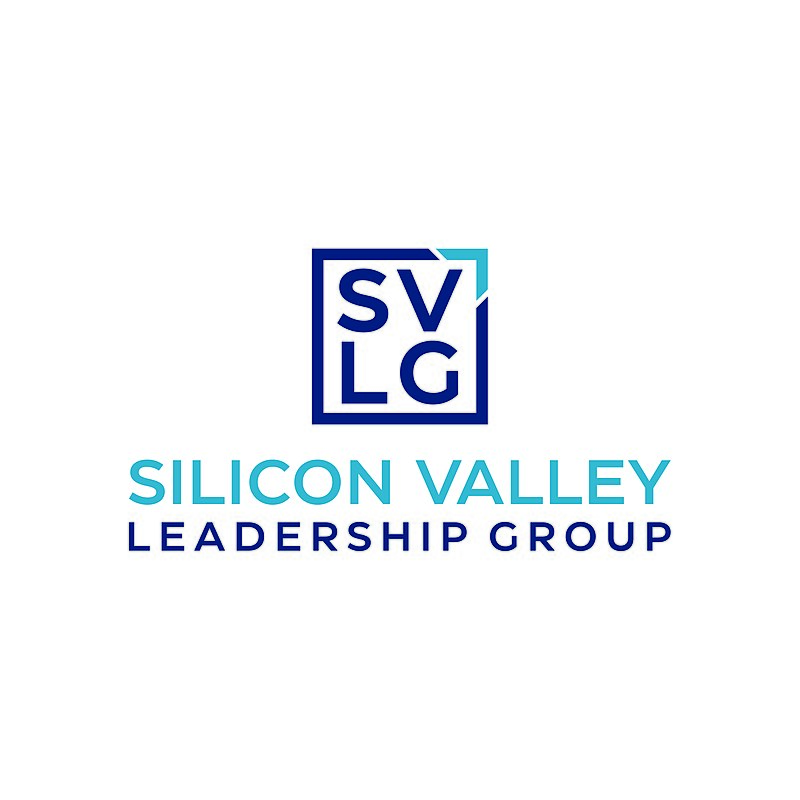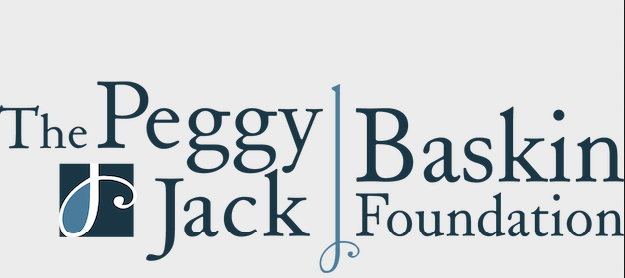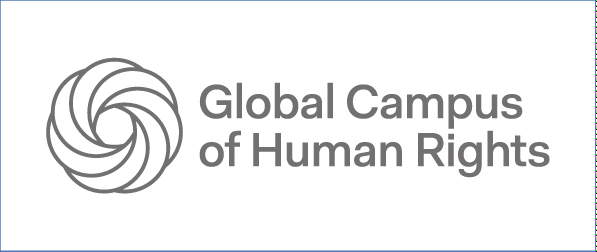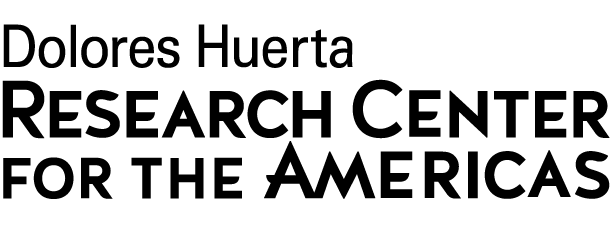Live Stream

Join us April 23-27, 2024, to celebrate the 10th anniversary of the UCSC Right Livelihood Center. We will inaugurate UCSC’s new role as Global Secretariat of the Right Livelihood College network, launch an international student network, launch faculty-laureate research clusters, and more. Events are free and open to the public.
International speakers
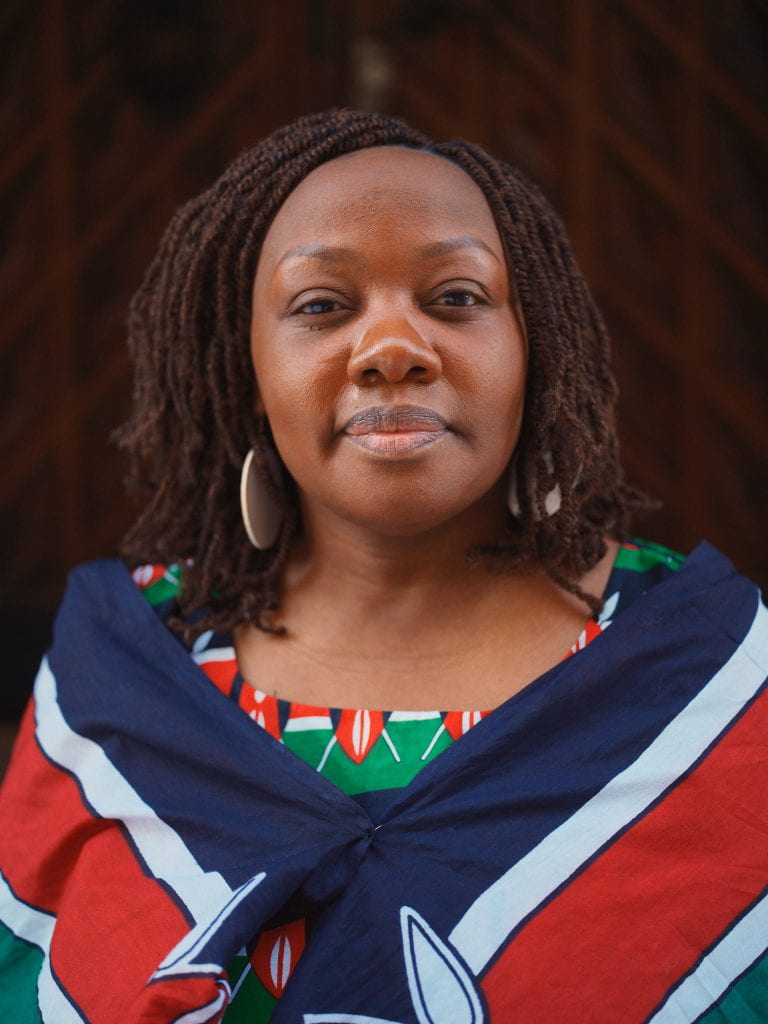
Phyllis Omido
Phyllis Omido – dubbed the “Erin Brockovich of East Africa” – is a Kenyan environmental activist leading the battle for the justice and health of the Owino Uhuru community that has suffered from lead poisoning ever since a battery smelting plant began operating in their village. Omido’s use of litigation, advocacy, and media engagement has set vital legal precedents, affirming people’s right to a clean and healthy environment and the state’s responsibility to safeguard it.
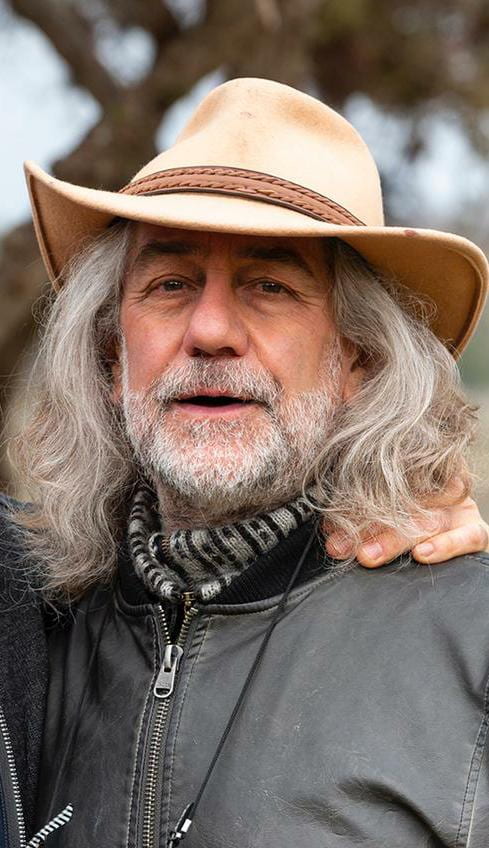
Juan Pablo Orrego
Juan Pablo Orrego is a Chilean musician and environmentalist who has worked for decades to preserve the Biobío River, one of South America’s most spectacular and ecologically significant rivers. The campaign has become a symbol of the environmental and social struggle still ongoing in the country, connecting the dots between energy policy, environment, indigenous people’s rights, monopolies, and the neo-liberal development goals of the establishment.
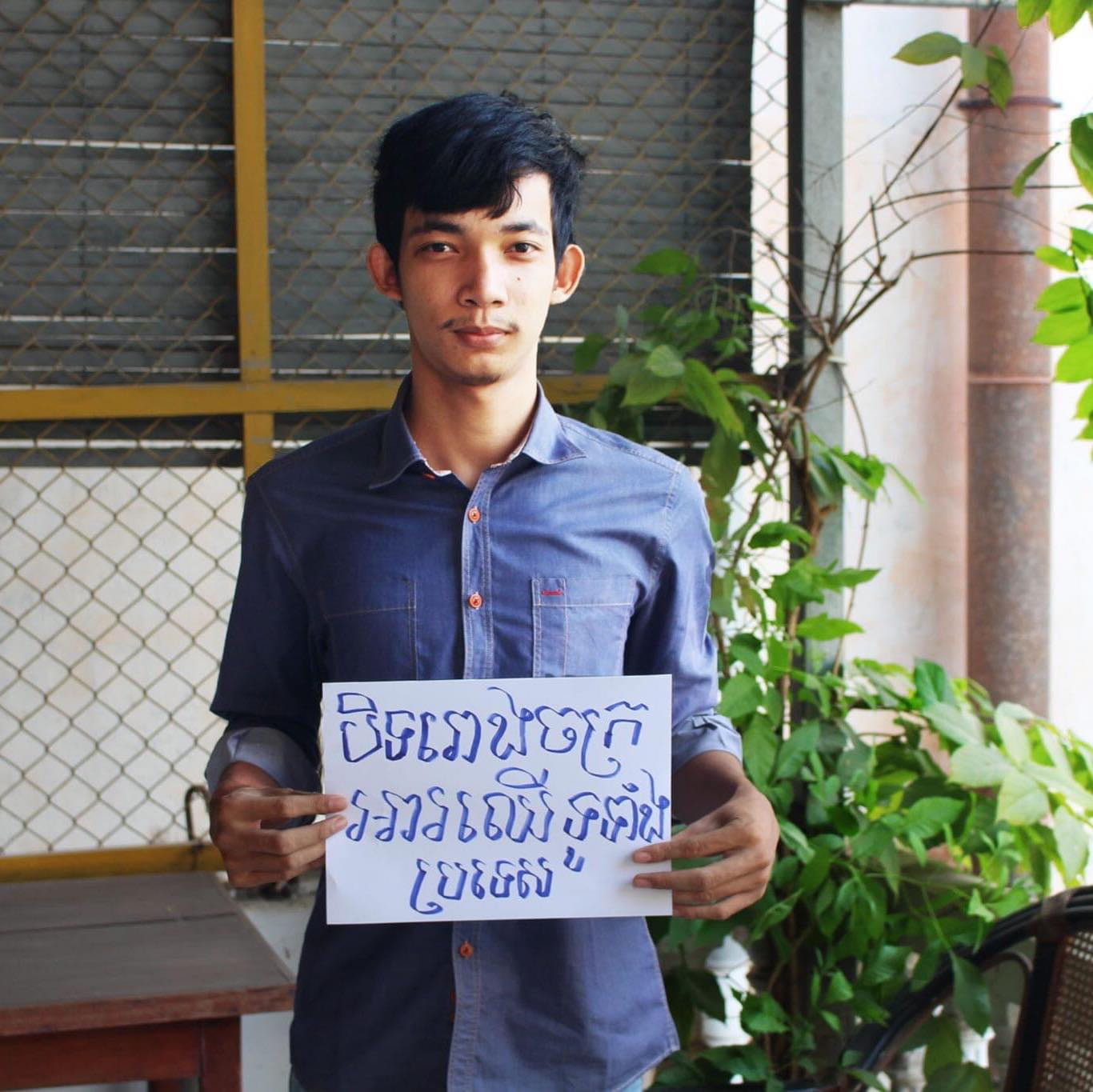
Chandaravuth Ly
Chandaravuth Ly is an environmental activist from Mother Nature Cambodia. In 2023, Mother Nature Cambodia, a youth-led environmental rights organisation, received the prestigious Right Livelihood Award for their fearless activism. They protect Cambodia’s natural resources and stand up for human rights and democracy in the face of a growing government crackdown.
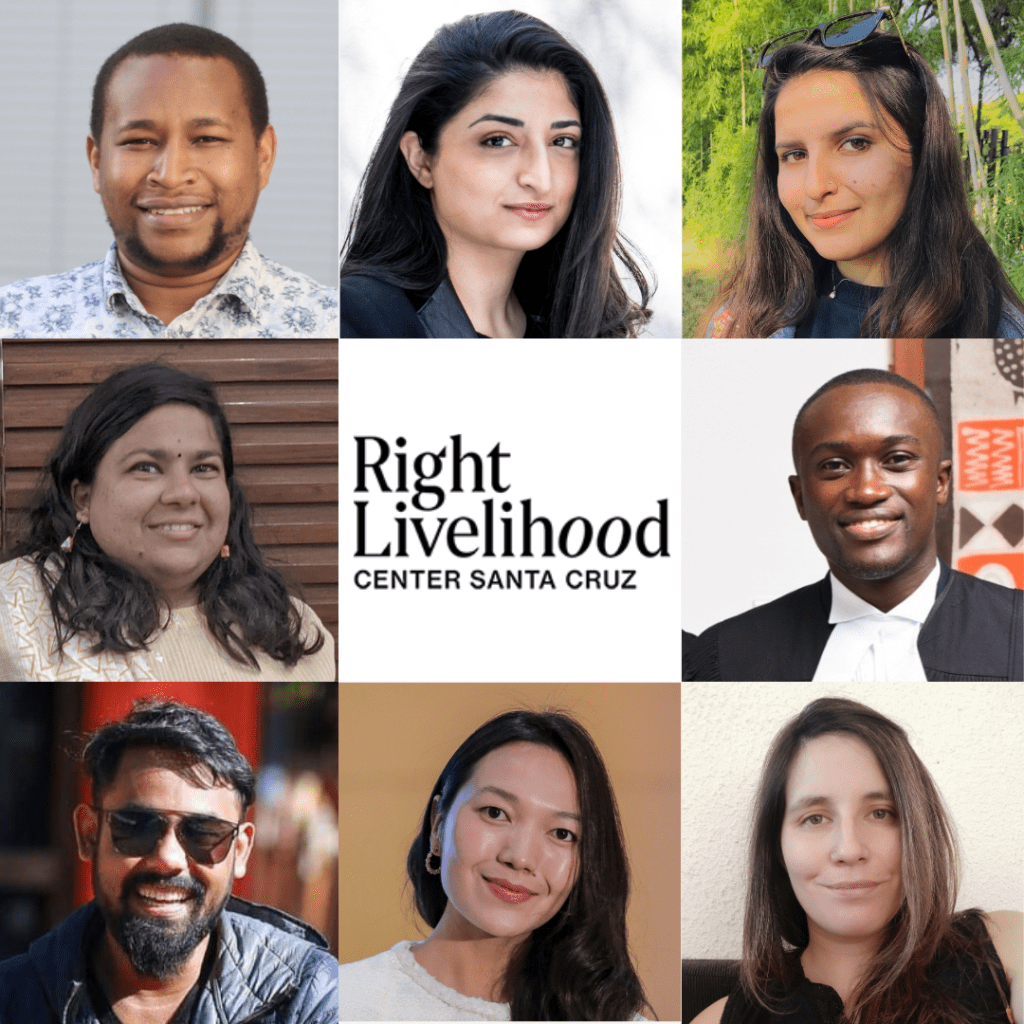
International Student Delegates
We will be joined by a cadre of eight students from the Global Campus of Human Rights, a network comprised of over 100 universities, and the Right Livelihood College, a network with campuses in Nigeria, India, Thailand, Chile, Argentina, Sweden, Germany, Switzerland, and UC Santa Cruz.
Student Delegates
- Uulzhan Bekturova, Master’s student in Human Rights and Sustainability, OSCE Academy, Kyrgyzstan
- Shobhajit Chowdhury, Asia Pacific Master of Arts in Human Rights and Democratization, Thailand (Bangladeshi national)
- Ronald Okiring, European Master’s in Human Rights and Democratisation, Belgium (Ugandan national)
- Nayet Kademian, Political Science Ph.D. student at Universidad Nacional de San Martin, Argentina
- Ayushi Khandelwal, Social Work Master’s student at Tata Institute of Social Science, Mumbai, India
- Joshua Muloi, Regenerative Agriculture PhD student at ZEF Center for Development Research, University of Bonn, Germany (Kenyan national)
- Gianina Orsi, Master’s student at Universidad Austral de Chile, Valdivia
- Fatima Ali Shah, Master’s student at Lund University, Sweden (Pakistani national)
Public Events
Wednesday, April 24, 2024
6:30 p.m. | Silicon Valley and The Just Transition to a Green Economy: A Conversation with Right Livelihood Laureates
Location: UCSC Silicon Valley Campus, Santa Clara
The transition to renewable energy and electric vehicles holds the promise of a more sustainable economy in the future. But there are major social and economic challenges that must be addressed in this much-needed transition–to ensure that the demand for new resources associated with this transition–lithium, copper, cobalt, aluminum, and more–doesn’t end up contributing to increased environmental degradation and human rights violations and that those whose livelihoods depend on our current fossil fuel-based energy and transportation systems are able to find new livelihoods. Silicon Valley has already played a central role in accelerating this transition through, for example, developing new electric vehicle technologies (California remains the largest site of EV employment in the country). Silicon Valley can also potentially play a strong role in contributing to a more just transition, such as through helping develop new technologies for battery reuse and recycling, conflict-mineral-free batteries, and more environmentally friendly mineral recovery processes such as direct lithium extraction.
Join us for an inspiring conversation moderated by Silicon Valley Leadership Group CEO Ahmad Thomas, with Phylis Omido, Juan Pablo Orrego, and Sanjiv Malhotra, as they all share their experiences of promoting a more sustainable and equitable Green Economy.
Phyllis Omido – dubbed the “Erin Brockovich of East Africa” – is a Kenyan environmental activist leading the battle for the justice and health of the Owino Uhuru community that has suffered from lead poisoning ever since a battery smelting plant began operating in their village. Omido’s use of litigation, advocacy, and media engagement has set vital legal precedents, affirming people’s right to a clean and healthy environment and the state’s responsibility to safeguard it.
Juan Pablo Orrego is a Chilean musician and environmentalist who has worked for decades to preserve the Biobío River, one of South America’s most spectacular and ecologically significant rivers. The campaign has become a symbol of the environmental and social struggle still ongoing in the country, connecting the dots between energy policy, environment, indigenous people’s rights, monopolies, and the neo-liberal development goals of the establishment.
Sanjiv Malhotra, Ph.D. is the founder and CEO of Sparkz—a battery start-up establishing the lithium battery ecosystem and re-engineering the battery supply chain. Malhotra has been a leader in the energy sector for three decades as a founder, investor, and executive. Most recently, he served as the first director for Energy Investor Center at the U.S Department of Energy.
Ahmad Thomas is the CEO of the Silicon Valley Leadership Group (SVLG), one of the nation’s most dynamic business associations representing the global technology companies driving the innovation economy and its ecosystem. A former investment banker and senior Congressional aide, he brings two decades of experience working both in and on behalf of businesses, social enterprises, and governments.
Thursday, April 25, 2024
8:00 a.m.- 7:00 p.m. | Teach-In!
Leading up to the Laureate talk at UCSC’s campus, we are hosting a day-long Teach-In in collaboration with Juan Pablo Orrego, Phyllis Omido, the Student Delegates, and UCSC professors. This is open to the public, and we hope to reach over 1,000 students on this day as classes come in and out.
8:00-9:25 a.m. | Global Health
Hosted by professor Laura Beth Bugg and “Community Studies 165: Community Analysis for Global Health”
Location: Cultural Center at Merrill
9:50-11:25 a.m. | Human Rights, Sustainability & the Future of Global Trade
Co-Hosted by professor Aims McGuinness and “HIS 124A: Panama Canal and U.S. Empire”
Co-Hosted by instructor Shankari Patel
Location: Cultural Center at Merrill
11:40 a.m.-1:05 p.m. | Global Politics, Local Resilience
Hosted by professor David Gordon and “POLI 70: Global Politics”
Location: Cultural Center at Merrill
1:30-3:05 p.m. | TBC
Location: Cultural Center at Merrill
3:20-4:55 p.m. | Youth Movements: A Conversation with Nayet Kademián
Hosted by professor Jessica Taft and “Latin American and Latino Studies 155: Latin American and Latino Youth Movements”
Location: Cultural Center at Merrill
5:20-6:55 p.m. | International Development: A Conversation with Gianina Orsi
Hosted by instructor Boyeong Kim and “Latin American and Latino Studies 159: Critical Approaches to International Development”
Location: Cultural Center at Merrill
5:20-6:55 p.m. | Culture of Waste
Hosted by professor Maria Puig de la Bellacasa and “History of Consciousness 152: Critical Ecologies: Thinking, Practice, Change”
Location: Merrill Plaza
7:00 p.m. | Resource Extraction and the Future of a Green Economy: Eliminating Sacrifice Zones in the Just Transition
Location: Cultural Center at Merrill, Santa Cruz
Large investment projects conceived to deliver “progress” and “development” often underdeliver on social progress, destroy vital ecosystems, and create vast “sacrifice zones.” Phyllis Omido (Kenya) and Juan Pablo Orrego (Chile), two Right Livelihood Award recipients, led iconic struggles against the devastating effects of extractivist projects. Displaying courage, wisdom, and initiative, they embody visions of the future and collaborative perspectives we urgently need more of to confront the challenges of the present.
Join us for an inspiring evening with Phyllis Omido and Juan Pablo Orrego as they share their experiences defending Mother Earth and its communities and reflect on lessons and actions we need to undertake to ensure that the ongoing “green” energy transition is just, equitable, and sustainable for all. UCSC Professor Fernando Leiva will moderate the event.
This event is part of the Institute for Social Transformation’s annual “Conversations on Climate Justice,” supported by the Kamieniecki Lecture Fund Endowment.
Phyllis Omido – dubbed the “Erin Brockovich of East Africa” – is a Kenyan environmental activist leading the battle for the justice and health of the Owino Uhuru community that has suffered from lead poisoning ever since a battery smelting plant began operating in their village. Omido’s use of litigation, advocacy, and media engagement has set vital legal precedents, affirming people’s right to a clean and healthy environment and the state’s responsibility to safeguard it.
Juan Pablo Orrego is a Chilean musician and environmentalist who has worked for decades to preserve the Biobío River, one of South America’s most spectacular and ecologically significant rivers. The campaign has become a symbol of the environmental and social struggle still ongoing in the country, connecting the dots between energy policy, environment, indigenous people’s rights, monopolies, and the neo-liberal development goals of the establishment.
Fernando Leiva is a Professor of Latin American and Latino Studies at UCSC. His current research follows two main lines. First, emerging strategies that multinational extractivist corporations deploy to overcome community resistance, mainly focusing on Chile’s Atacama region. His second line of research involves the study of economic elites in the Americas and the political economy of Latin American capitalism.
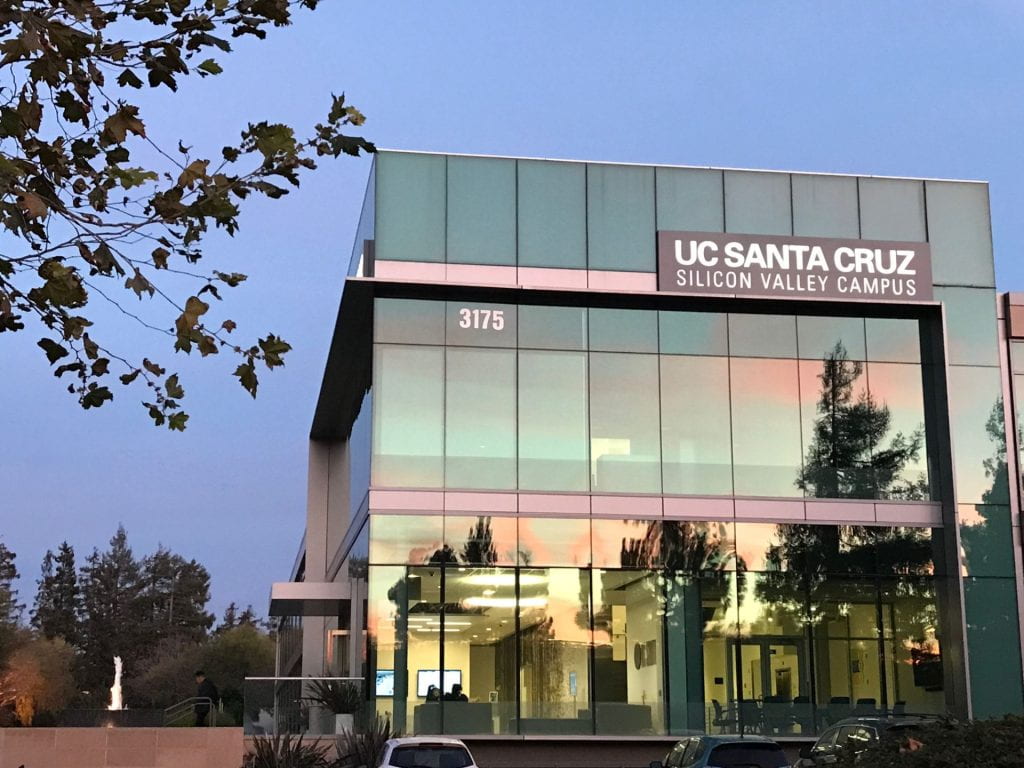
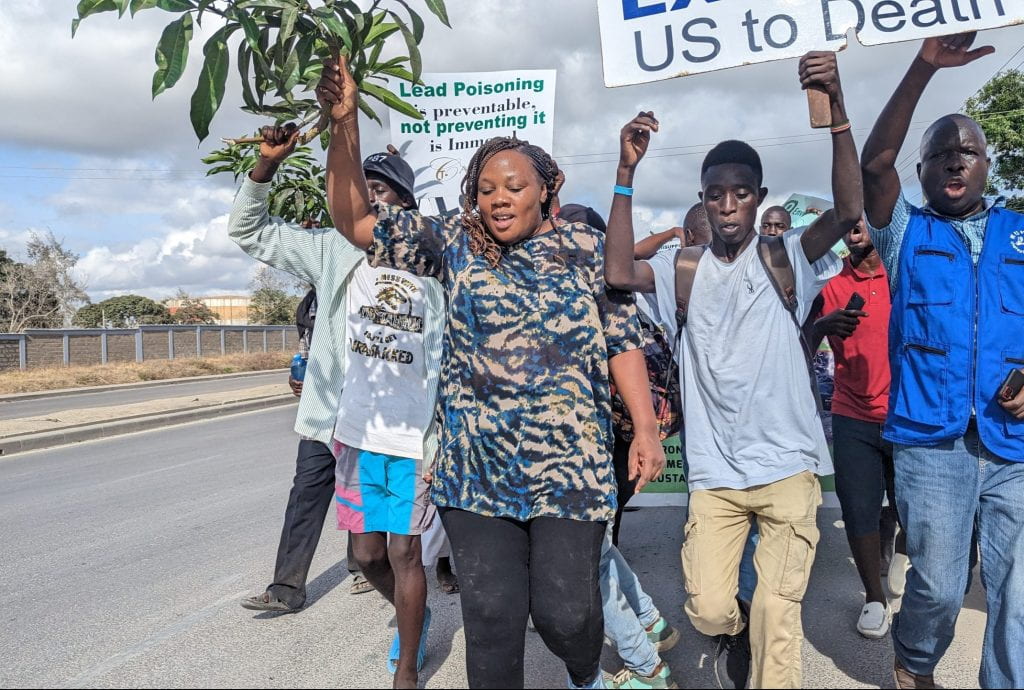
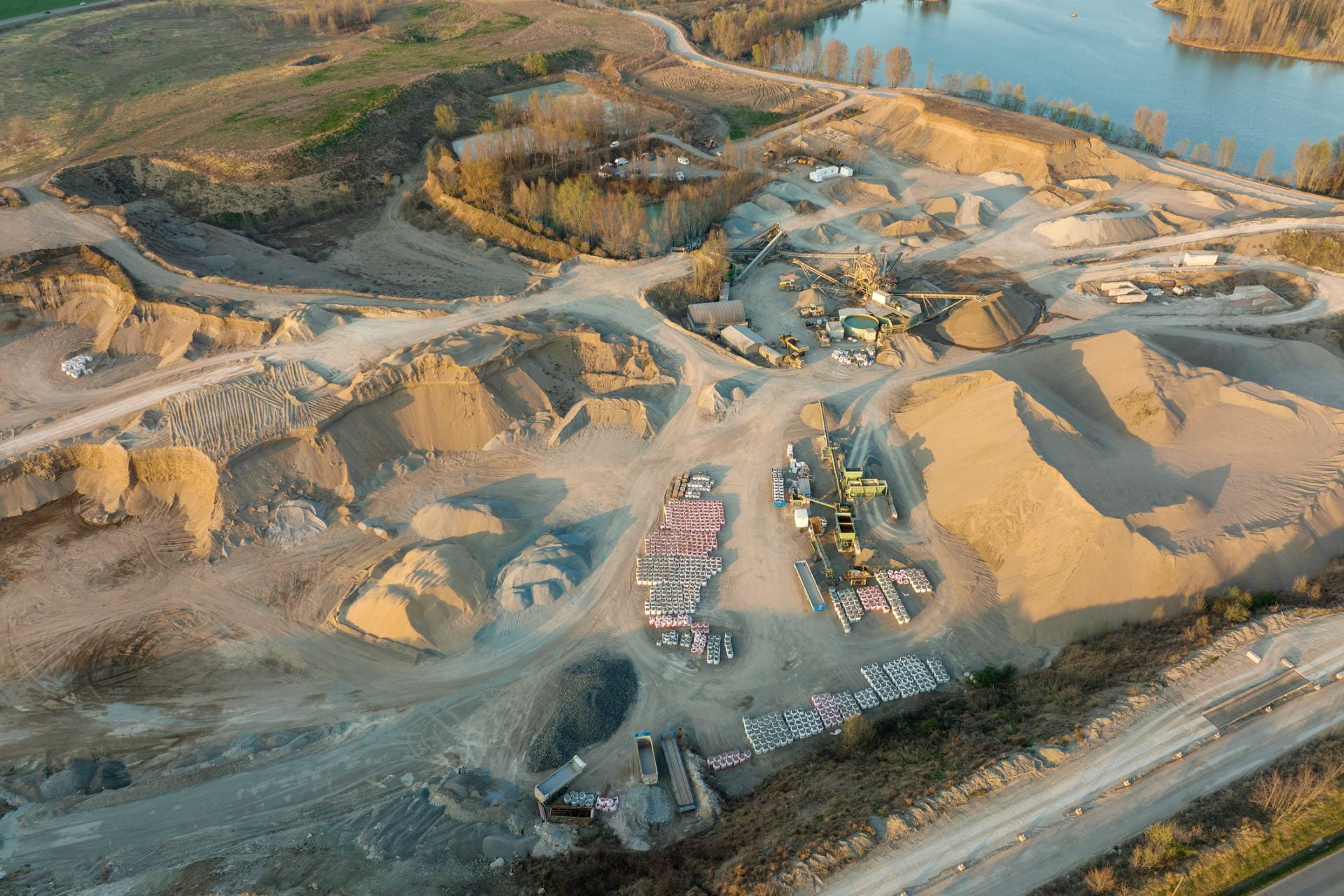
Events for Students, Faculty, and Staff
View a printable copy of the conference schedule and participant list, and add the conference to your Google Calendar.
Tuesday, April 23, 2024
12-3 p.m. | Opening Dialogue: The World Cafe
Location: Alumni Room at College Nine
Through our dialogue sessions, we will launch our Right Livelihood International Student Network by creating a mission and timeline for goals to be achieved together. This session begins with a communal meal followed by a “World Cafe” dialogue in which we share our background and what matters to us, give voice to what we feel most empowered to change in our communities, and visualize our collective intelligence. Between the conversations and communal meal, we hope to understand one another better and lay the groundwork for building our network’s roadmap.
3-5 p.m. | Campus Tour
Location: UCSC Campus
A tour of UCSC led by students and staff of the Right Livelihood Center. UCSC students and delegates are welcome to join our international visitors as they visit UCSC’s hot spots, historic sites, and campus favorites.
5:15-7 p.m. | Student Cultural Exchange
Location: Ethnic Resource Centers, Cervantez & Velasquez Rm
We invite student affiliates with UCSC’s Ethnic Resource Centers, our delegates, and international visitors to attend a Cultural Exchange. Through a series of informal 5-minute student shares, this relaxed event will give our visitors a chance to get to know the different cultures across UCSC’s campus over dinner, as well as give UCSC students a chance to learn about the regions and passions of our visitors. No one is required to talk unless they want to, and food will be provided for all who RSVP.
7:30-9 p.m. | Full Moon Beach Bonfire
Location: Seabright Beach
We invite UCSC students to join our delegates and international visitors in making friends and celebrating the sunset and full moonrise.
Wednesday, April 24, 2024
9:30-11:45 a.m. | Research Colloquium: Extractivism, Resistance, and Environmental Movements
Extractivism, Resistance, and Environmental Movements: A Research, Education, and Activism Colloquium
Location: Graduate Student Commons
Invited audience: Faculty and graduate students
Co-sponsors: Grad Student Commons, Latin American and Latino Studies Department, Politics Department, and Legal Studies Program.
Learn what graduate students, faculty, and Right Livelihood Laureates are doing to combat resource extraction, protect human rights, and connect activism and academia.
- Fernando Leiva: Extractivism and Society Research Cluster (Professor, LALS)
- Alejandra Watanabe Farro: Extractivism in Chile and Peru (Ph.D. student, LALS)
- Nate Edenhofer: Community resistance to mining in Honduras, Guatemala, Panama, and the Salton Sea in California (Ph.D. student, Politics)
- Tamara Ortega: Lithium in California and Chile (Ph.D. student, Politics)
- Phyllis Omido: Center for Justice Governance and Environmental Action, Kenya
- Juan Pablo Orrego: Ecosistemas, Chile
- Chris Benner: Professor, Sociology, and Institute for Social Transformation
- Jessica Taft: Professor, LALS, and Dolores Huerta Center for the Americas
- Dave Shaw: Right Livelihood Center and Ph.D. student in Environmental Studies
12:45-3:15 p.m. | Open Space Village Marketplace and Dialogue Session 1 | Concurrent Sessions
Location: Alumni Room at College Nine
Delegates will participate in a series of “Open Space Technology” sessions throughout the week. We will co-create our agenda together using Open Space, a methodology based on passion and responsibility: passion about a topic or activity and responsibility to put it on the agenda. This allows us to collaborate on the goals we prioritize as the Right Livelihood Student Network. This methodology allows us to participate in what we feel most passionate about and direct this emerging network toward global solidarities for social and environmental justice. Delegates will create a final product – a “Roadmap” of the projects, objectives, and maintenance of the Right Livelihood Student Network.
Thursday, April 25, 2024
8:00-9:25 a.m. | Teach-In! Global Health
Hosted by professor Laura Beth Bugg and “Community Studies 165: Community Analysis for Global Health”
Location: Cultural Center at Merrill
9:50-11:25 a.m. | Teach-In! Human Rights, Sustainability & the Future of Global Trade
Co-Hosted by professor Aims McGuinness and “HIS 124A: Panama Canal and U.S. Empire”
Co-Hosted by instructor Shankari Patel
Location: Cultural Center at Merrill
11:40 a.m.-1:05 p.m. | Teach-In! Global Politics, Local Resilience
Hosted by professor David Gordon and “POLI 70: Global Politics”
Location: Cultural Center at Merrill
1:30-3:05 p.m. | Teach-In! TBC
Location: Cultural Center at Merrill
3:20-4:55 p.m. | Teach-In! Youth Movements: A Conversation with Nayet Kademián
Hosted by professor Jessica Taft and “Latin American and Latino Studies 155: Latin American and Latino Youth Movements.”
Location: Merrill Lawn
3:20-4:55 p.m. | Teach-In! Human Rights
Hosted by instructor Shawn Nichols and “Legal Studies 175: Human Rights.”
Location: Cultural Center at Merrill
5:20-6:55 p.m. | Teach-In! International Development: A Conversation with Gianina Orsi
Hosted by instructor Boyeong Kim and “Latin American and Latino Studies 159: Critical Approaches to International Development.”
Location: Cultural Center at Merrill
5:20-6:55 p.m. | Teach-In! Culture of Waste: An Interactive Workshop in the Work That Reconnects
Location: Merrill Lawn
As the environmental crisis deepens in vastly unequal ways across the planet, people and societies are compelled to prevent the collapse of living environments by becoming more ecological.
Join us for a transformational group process that builds motivation, connection, solidarity, and vision, renewing the courage to act for the healing of our world. In these times of resource extraction, climate chaos, rampant inequality, systemic racism, and other daily catastrophes, there is a tension between our desire to take urgent action and our need to process reality on a deeper level.
Guides:
- Caylie Soon, Waste Reduction Education Assistant at the City of Santa Cruz and Assistant Farm Manager at the Santa Cruz Permaculture Farm
- Maria Puig de la Bellacasa, professor in History of Consciousness
This is a special session for students in the undergraduate course “History of Consciousness 152: Critical Ecologies: Thinking, Practice, Change” and the graduate course “HISC 278: Speculative Ecologies.”
Friday, April 26, 2024
9:00 a.m.-4:30 p.m. | Open Space Dialogue Sessions 2 to 6 | Concurrent Sessions
Location: Cultural Center at Merrill
Delegates will participate in a series of “Open Space Technology” sessions throughout the week. We will co-create our agenda together using Open Space, a methodology based on passion and responsibility: passion about a topic or activity and responsibility to put it on the agenda. This allows us to collaborate on which goals we plan to prioritize as the Right Livelihood Student Network. This methodology allows us to participate in what we feel most passionate about, and direct this emerging network towards global solidarities for social and environmental justice. Delegates will create a final product – a “Roadmap” of the projects, objectives, and maintenance of the Right Livelihood Student Network.
Saturday, April 27, 2024
9:00 a.m.-12:00 p.m. | Action Planning and Closing Ceremony
Location: Cultural Center at Merrill
Delegates will participate in a series of “Open Space Technology” sessions throughout the week. We will co-create our agenda together using Open Space, a methodology based on passion and responsibility: passion about a topic or activity and responsibility to put it on the agenda. This allows us to collaborate on which goals we plan to prioritize as the Right Livelihood Student Network. This methodology allows us to participate in what we feel most passionate about, and direct this emerging network towards global solidarities for social and environmental justice. Delegates will create a final product – a “Roadmap” of the projects, objectives, and maintenance of the Right Livelihood Student Network.
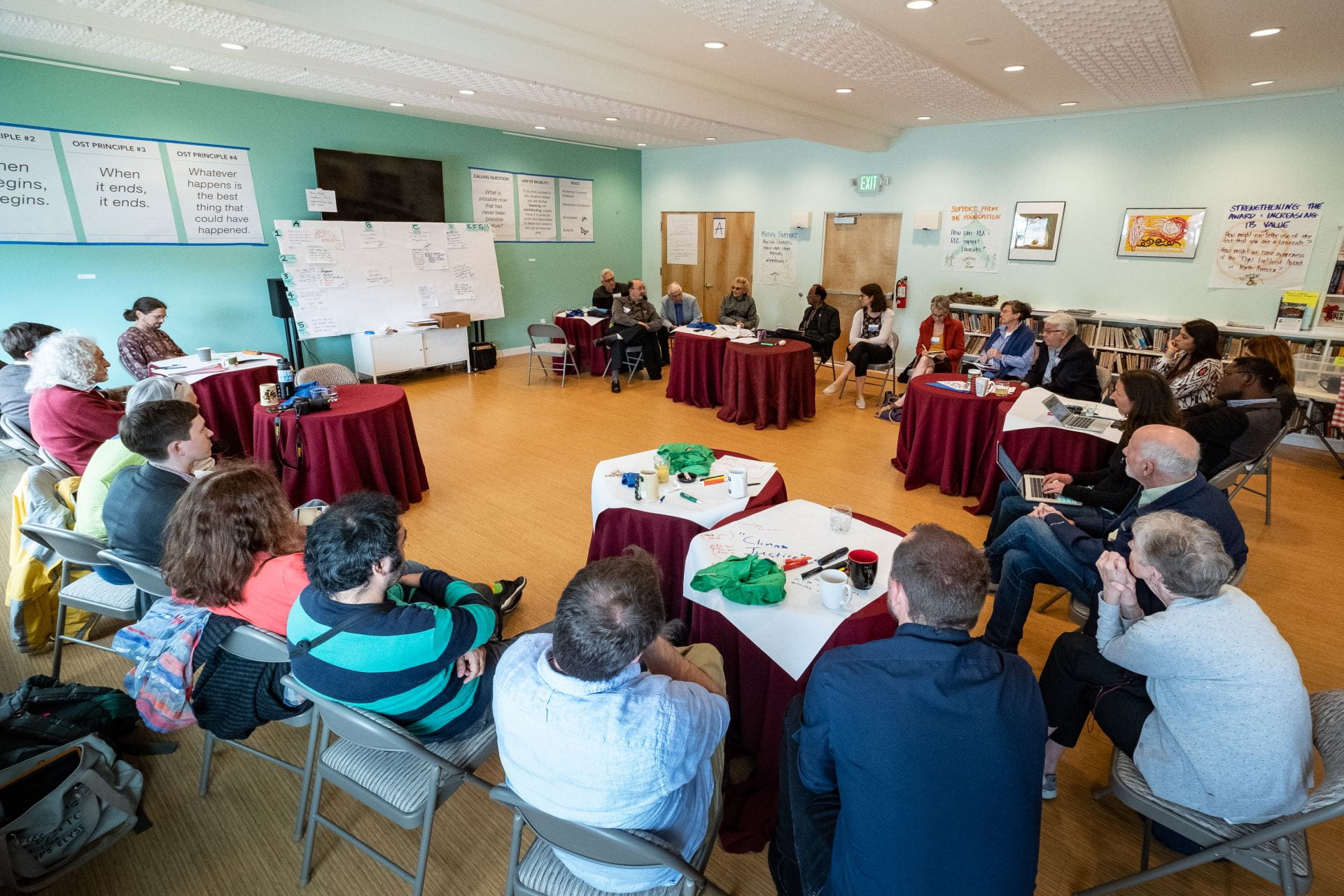
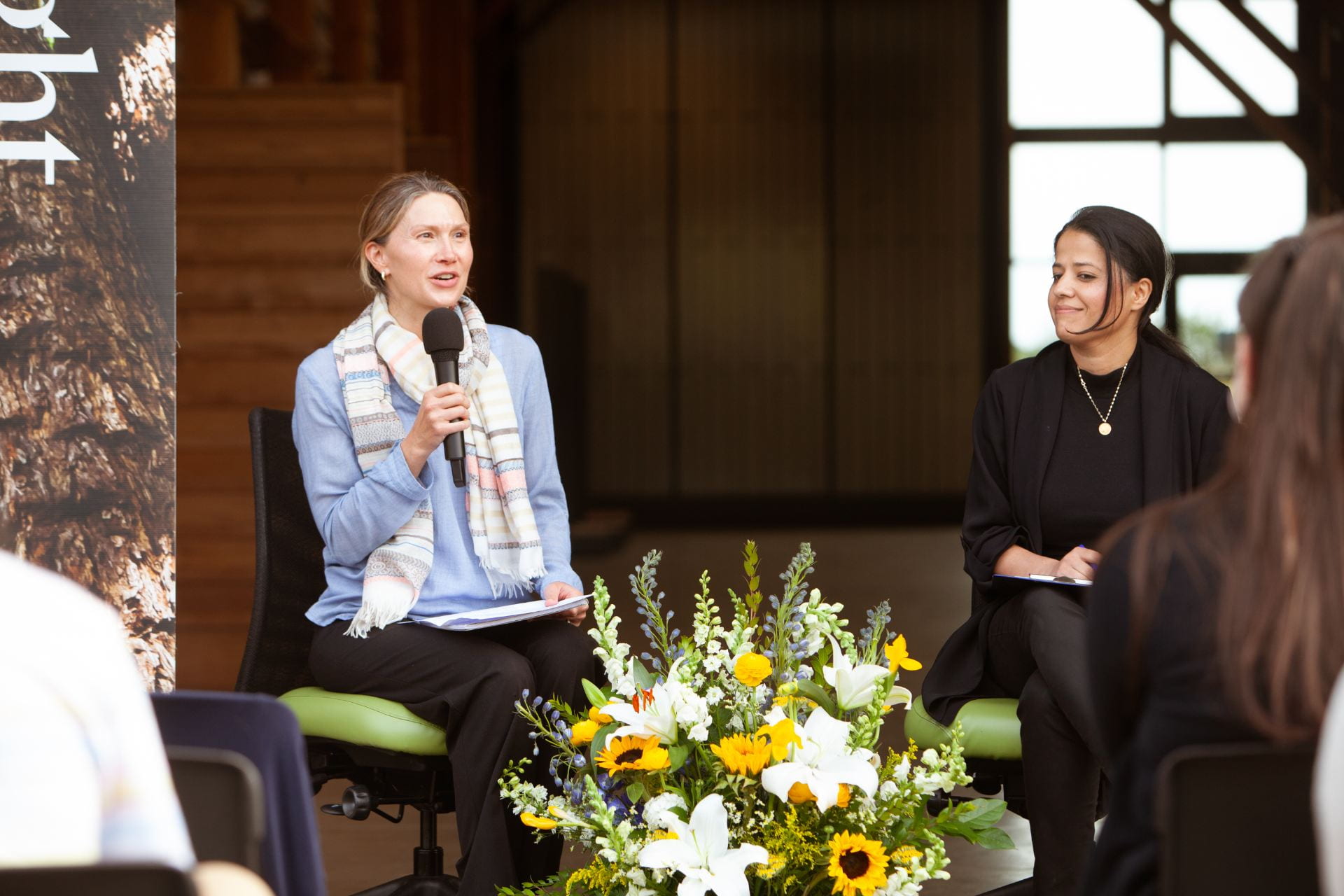
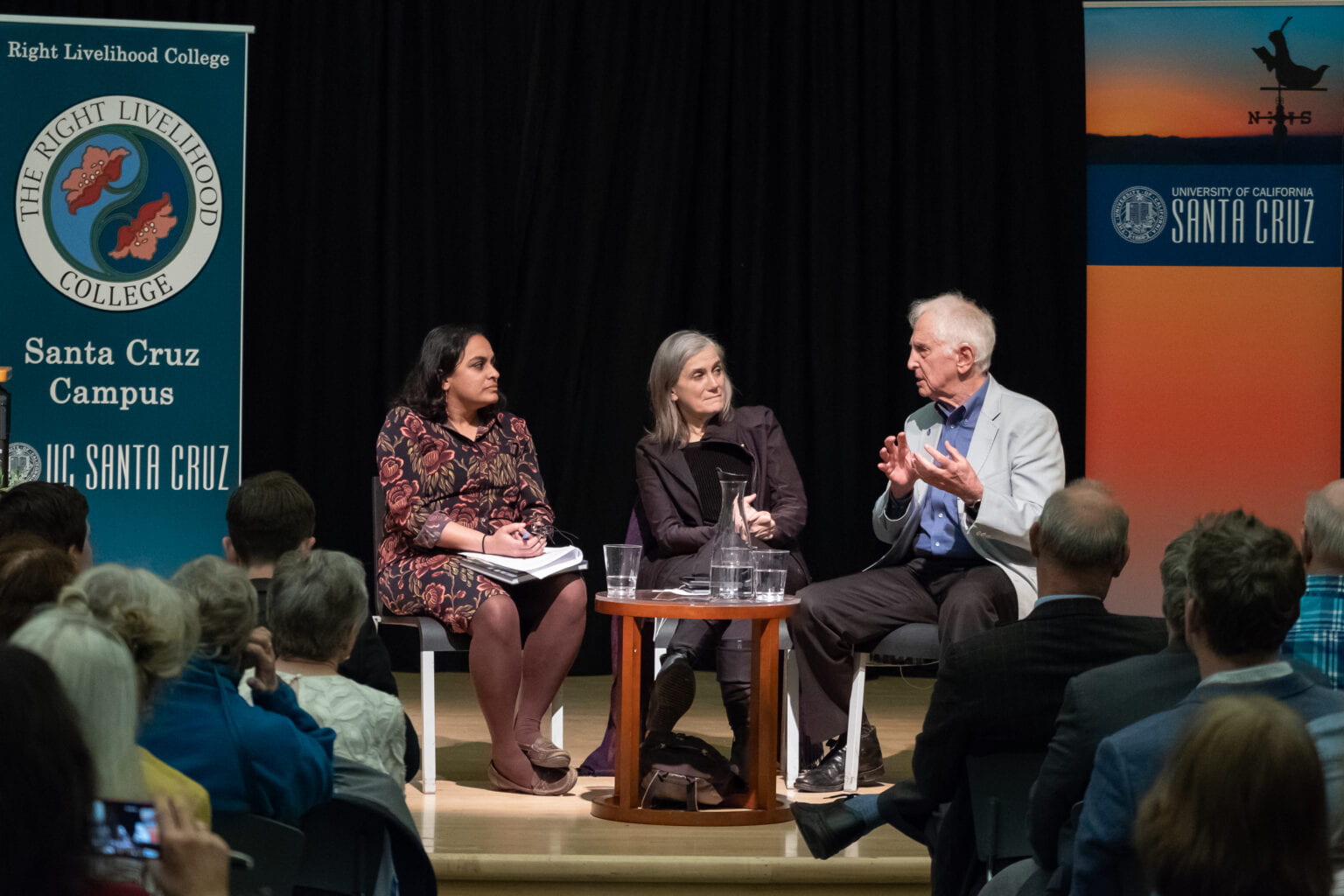
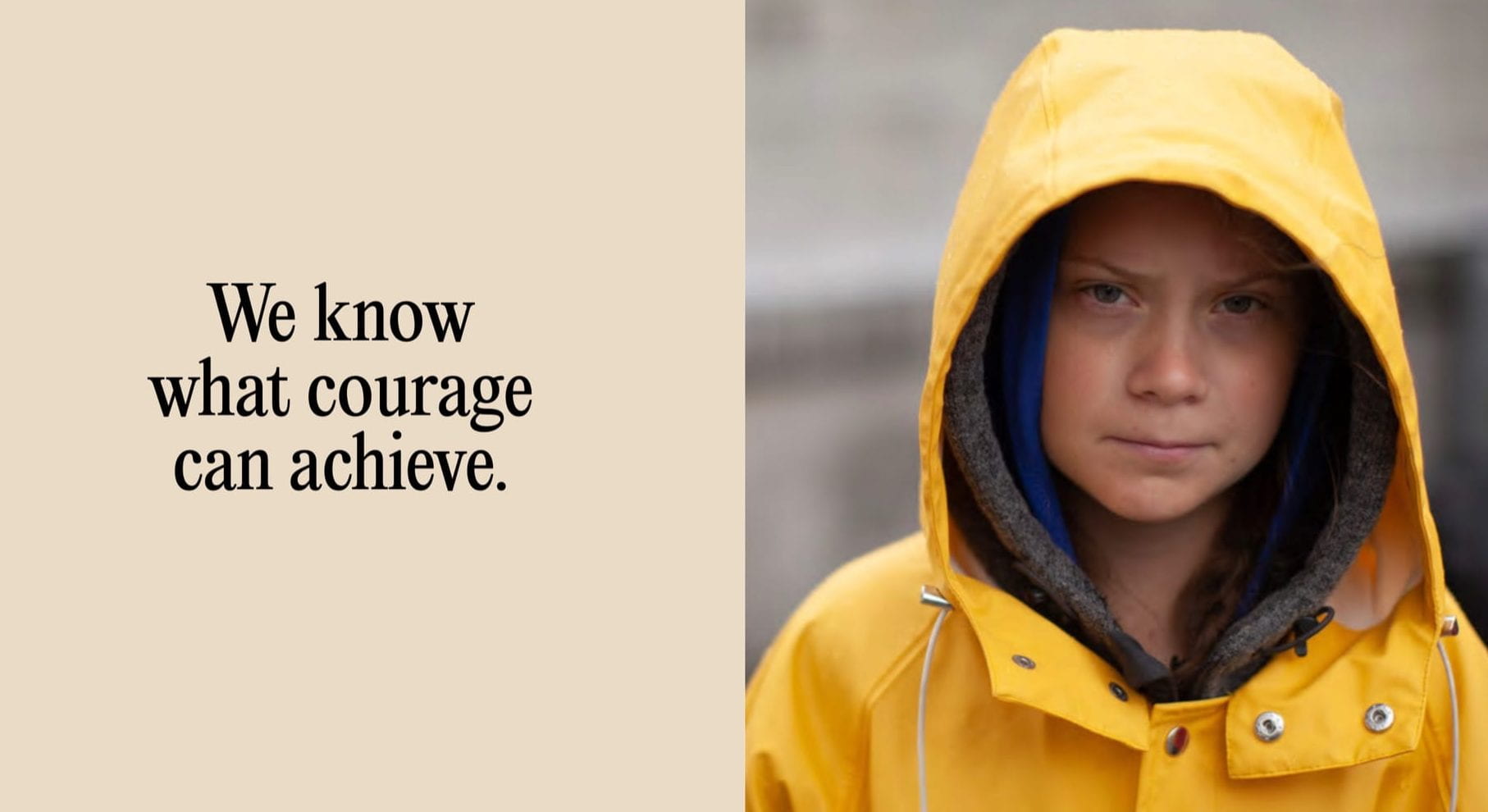
About Right Livelihood
Since 1980, the Right Livelihood Award, known as the ‘Alternative Nobel Prize,’ has recognized courageous changemakers boosting urgent and long-term social change. There are 194 Laureates from 76 countries, including Greta Thunberg, Daniel Ellsberg, Vandana Shiva, Amy Goodman, Bill McKibben, and Wangari Maathai. In 2009, the Right Livelihood College (RLC) was formed as a global capacity-building initiative linking Laureates and universities – activists and academics. Established in 2013, UCSC’s Right Livelihood Center is the only campus in North America in the global RLC network, which spans five continents, including Bangkok (Thailand), Bonn (Germany), Cordoba (Argentina), Lund (Sweden), Mumbai (India), Port Harcourt (Nigeria), Valdivia (Chile), Zurich (Switzerland), and a partnership with the Global Campus for Human Rights, a network of 100 universities worldwide. The Right Livelihood Center at UCSC is housed at the Institute for Social Transformation.
By linking students and faculty with Laureates and the movements they are part of – some of the world’s most successful changemakers – we build solidarity with global movements and become more effective in our social and environmental change work. In May 2023, UCSC was invited to become the next Global Secretariat of the RLC to lead and coordinate this global network, providing us with a unique opportunity to increase student engagement and make major contributions to people and the planet.
Conference background
As our societies emerge from the pandemic amidst the intertwined crises of climate change, democratic backsliding, and economic inequality, and as the Global Secretariat role rotates to UC Santa Cruz, we seek to strengthen the RLC into a more effective catalyst for the urgent global change now needed. By convening Right Livelihood Laureates and student leaders from across the network for intensive and sustained discussions, we plan to co-create a common vision and specific roadmap to guide the next phase of RLC’s evolution.
This is an open call for student and youth activists across the United States and the world to serve as delegates at the conference. We are excited by the vast amount of UCSC students who will participate in the events, but as the Right Livelihood Center at UCSC is the only Right Livelihood affiliated university in North America, we want a diversity of perspectives represented at this conference. Our international conference will mark the launch of our Right Livelihood International Student Network because we believe we will be stronger by accomplishing our goals together. All delegates will participate in the creation of a declaration of the principles and plans of the emerging network. We encourage all students/youth activists to RSVP for whichever events they can attend.
Sponsors
The Right Livelihood Center wishes to thank the many supporting and cosponsoring organizations, including the Institute for Social Transformation, Division of Social Sciences, UCSC Foundation, Kamieniecki Lecture Fund Endowment, Merrill, Porter and Stevenson Colleges, Global Campus of Human Rights, Student Fee Advisory Committee, Dolores Huerta Research Center for the Americas, The Humanities Institute, Politics Department and the Politics Democratic Discourse and Engagement Initiative, Legal Studies Department, Silicon Valley Leadership Group, Division of Student Affairs and Success, The Jack and Peggy Baskin Endowed Chair in Feminist Studies, and Graduate Student Commons.
If you are a sponsor or partner in this event and would like to help promote the conference, access our Social Media and Press Toolkit with graphics, a flyer, and language to help spread the word.

